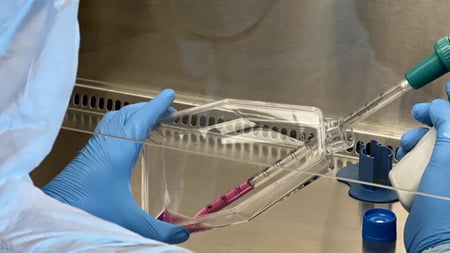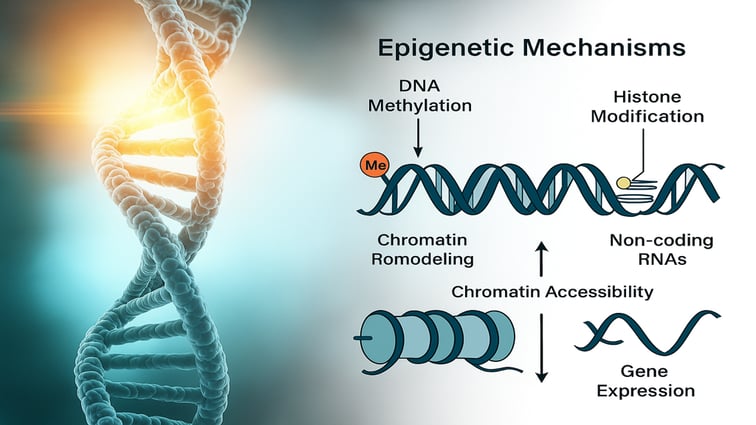Frequently Asked Questions about Clinical iPSCs
A. Donor Recruitment
1. Can REPROCELL provide donor material for your clinical stem cell service?
REPROCELL can efficiently recruit your desired donors and isolate fibroblasts from these tissues, following guidelines for USP29 <1043> Ancillary Materials for Cell, Gene, and Tissue-Engineered Products (US Pharmacopeia), FDA 21 CFR 1271, EMA COMMISSION DIRECTIVE 2006/17/EC and PMDA MHLW Notification No.375 (2014).
2. What mechanisms were put in place for the protection of donor privacy and confidentiality?
Donors are de-identified and after tissue collection are referenced by a unique ID. The donor-ID link is maintained only at the collection site. The consent form and all documents containing the donor identifiers are kept at the collection site in accordance with Institutional Review Board (IRB) guidelines.
3. Regarding donor tissue material, is there evidence of free and voluntary informed consent, in conjunction with independent review and oversight, with particular attention given to disclosure of potential research, clinical and commercial applications?
All donors are consented, provided HIPPA authorization agreement and provided Subject Bill of Rights for Clinical collection. The IRB provides an independent review of the documents and practices governing our tissue collection protocols. The donor tissues are consented for commercial and clinical use.
4. What are the regulations governing the acquisition of human donor tissues guiding REPROCELLs protocols?
We follow FDA 21 CFR 1271 and EMA COMMISSION DIRECTIVE 2006/17/EC and PMDA MHLW Notification No.375 (2014) Standard for Biological Ingredients for the appropriate and ethical tissue collection and pathogen testing, with pathogen testing being performed at CLIA certified laboratories. All SOPs and documentation follow FDA and EMA and PMDA requirements for tissue collection for HCTPs (Human Cellular Tissue Product) use.
B. Starting Primary Cell Types
1. For clinical iPSC projects, what cell types does REPROCELL use as a primary cell source for reprogramming? How about blood and urine samples?
At current, we will mainly provide reprogramming service for clinical iPSC projects using fibroblasts as the primary cell source. We will provide custom services using blood cells. Please contact us for more information.
2. Can REPROCELL generate clinical iPSCs from fibroblasts provided by the client?
REPROCELL can use fibroblasts for reprogramming into clinical iPSCs, if your provided cells conform with REPROCELL’s donor collection standards. Your fibroblast lines, at a minimum, need to be tested for mycoplasma and sterility upon arrival at our facility with the proper documentation.
C. Reprogramming
1. What method of iPSC generation is used?
We use our newest proprietary, integration-free, virus-free StemRNA™ 5.0 Clinical Reprogramming Technology for all our clinical grade stem cell projects.
2. What are REPROCELL’s standard procedural steps in generating GMP iPSC MCBs?
Our clinical projects consist of certain key milestones.
-
- In the first phase a primary fibroblast culture is derived and characterized from a skin punch biopsy.
- Using our proprietary mRNA technology, we generate clinically compatible clonal iPSC seed stocks in our ISO9100:2015 certified US laboratory following highly regulated SOPs in accordance with FDA 21 CFR 1271, ICH-Q7, EMA (COMMISSION DIRECTIVE 2004/23/EC: Starting Materials), and PMDA (Standards for biological ingredients).
- In the next phase we offer you an evaluation period on multiple seed stock iPSC clones to validate your differentiation protocol, perform a Proof-of-concept study and narrow down your clone of interest prior to the Master Cell Bank (MCB) process. Upon successful completion of this optimization period the chosen seed iPSC clone will be processed into an MCB. The last phase is the establishment and maintenance of MCBs which is conducted in a GMP environment. To meet the more rigorous EMA guidelines, we manufacture MCBs in compliance with FDA CGTP (12 CFR 1271) as well as FDA cGMP (21 CFR 120, 211), EMA GMP (Guidelines on Good Manufacturing Practice specific to Advanced Therapy Medicinal Products), and PMDA GMP (Good Gene, Cellular, and Tissue-based Products Manufacturing Practice).
Due to the evaluation phase, you can use the same clone starting from preclinical work, up to clinical and commercialization phase.
We develop custom exclusive GMP cell lines as a service for clients, including production of MCBs and Working Cell Banks (WCB). We are offering non-exclusive off-the-shelf seed stock iPSC lines which we can provide you soon for evaluation.
Research-use only (RUO) iPSC clones may be available from the same donor. Please contact us for more info.
D. iPSC Manufacturing & Quality Control
1. What kind of characterization and safety test results are available for the generated cell lines? Which release assays are used to validate GMP MCBs and WCBs?
All assays are performed in accordance with ICH Q5A/D guidelines. Testing includes mycoplasma and sterility testing, STR genotyping, karyotype analysis, electron microscopy (TEM), a panel of in vivo and in vitro virus testing, as well as other testing such as morphology check, pluripotency marker expression and purity analysis (flow cytometry and immunostaining), viability, growth rate, and HLA typing.
2. What assays will REPROCELL perform to identify unwanted mutations in the established clonal lines?
For the primary fibroblast lines, seeds stock and MCB iPSC clones we perform as a standard low-resolution assays such G-band karyotyping. For higher resolution mutation analysis, we can outsource other types of analyses such as WGS, WES, or array CGH analysis to a CGLP lab.
3. What kind of genomic characterization is available for generated cell lines?
REPROCELL can provide WGS, WES, RT-PCR, and Bioinformatics.
4. What is the ISO classification of the GMP suites?
The GMP manufacturing suites meet ISO-5 and ISO-7 guidelines.
E. Pricing and Royalties
1. Are there any royalty payments or other fees?
There is a one-time royalty fee per iPSC line payable to REPROCELL after the evaluation period of the seed stock iPSC clones. Once this fee is paid the ownership, documentations and all commercial and therapeutic rights are transferred to you. Unlike royalty schemes for other iPSC technologies, there are no milestone payments and no running royalties.
2. What licenses do I need?
REPROCELL’s proprietary StemRNA™ 5.0 Clinical Reprogramming Technology will enable you to use the cell lines without acquiring other licenses regarding the iPSC generation technology, with the exception of relevant and corresponding license programs established by iPS Academia Japan, Inc. (Subject to your own legal due diligence).
F. Glossary
- CFR = Code of Federal Regulations (US)
- CGH = Comparative Genomic Hybridization
- CGLP = current Good Laboratory Practice
- cGMP = current Good Manufacturing Practice
- CLIA = Clinical Laboratory Improvement Amendments
- EMA = European Medicines Agency
- FDA = Food and Drug Administration (US)
- HCTPs =Human Cellular Tissue Product
- HIPPA = Health Insurance Portability and Accountability Act (US)
- ICH = International Council for Harmonisation
- iPSC= Induced pluripotent stem cells
- IRB = Institutional Review Board
- ISO = International Organization for Standardization
- MCB = Master Cell Bank
- PMDA = Pharmaceuticals and Medical Devices Agency (Japan)
- RT-PCR = Reverse Transcriptase-Polymerase Chain Reaction
- RUO = Research Use Only
- SOP = Standard Operating Procedure
- USP = United States Pharmacopeia
- WCB = Working Cell Bank
- WES = Whole Exome Sequencing
- WGS = Whole Genome Sequencing
Last Update: 26th October 2021




